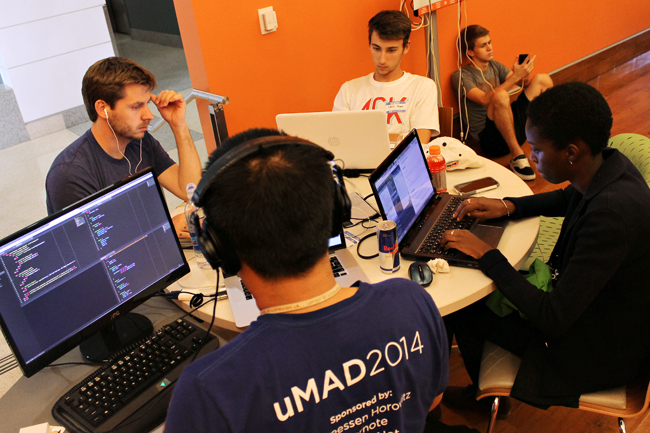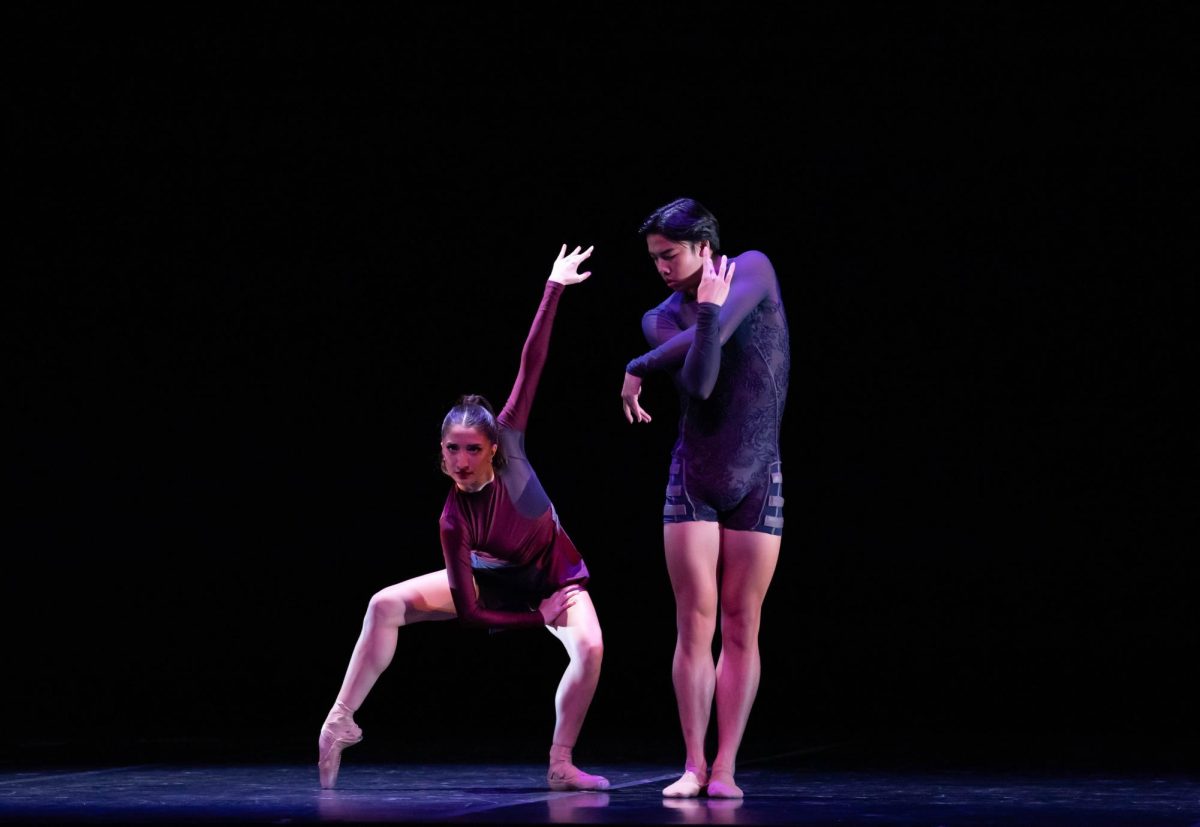A computer science student’s dream becomes reality for two days at HackTX when the SAC fills with hundreds of students working diligently on their laptops, playing video games and talking with tech representatives.
At the event, which was held last weekend, students put themselves into small teams and invented anything from an app to computer hardware. Taylor Barnett, computer science senior and lead organizer of HackTX, said hackathons like this bring students from around the country together.
“Everybody runs and finds a space,” Barnett said. “Then you start working.”
Some participants come to hackathons with ideas and teams already in place, but all participants are prohibited from using any sort of prior work to help them create their product.
“[Hackathons] show you what someone can do in 24 hours,” Barnett said. “It’s really incredible.”
Barnett said productivity increases at hackathons in part because of the focused energy but also because various companies send
representatives to provide insight and resources to help students with their projects.
“The companies understand they’re there as mentors, not to be a part of a team,” said Barnett. “They’re a resource — not a crutch.”
Major League Hacking is one such company. Mike Swift, co-founder and commissioner of Major League Hacking, said, since its founding in fall 2013, the company has made high-quality hackathons more accessible.
“You can think of us as the NCAA for hackathons,” Swift said.
Another purpose of Major League Hacking is to provide continuity amongst the hackathon community. Before Major League Hacking, people would typically just go to their school’s hackathon or possibly one in the area. Now, it’s normal to go to multiple hackathons a year, even if it means flying across the country.
Although Swift said he doesn’t believe the company is the sole reason hackathons have become more legitimized, he said it has done its part.
“Hackathons have been growing organically for the last couple of years,” Swift said. “But what they were waiting for was something to connect them.”
Swift said Major League Hacking also provides things to entertain hackers in their downtime, such as photo booths and unreleased gaming consoles to use.
“What we really want is for people to walk away and say, ‘That was the best experience of my life,’” Swift said.
Barnett said HackTX is unique because it reaches out to groups that feel they should have more of a hackathon presence. Barnett focused specifically on women.
“Women are typically underrepresented in hackathons,” Barnett said. “Even more so than in their respective majors.”
Barnett said 20 percent of this year’s participants were women and 60 percent of the participants had never attended a hackathon before.
Southern Methodist University freshman Eric Straw was part of that 60 percent. He said he was more focused on getting the hang of things than being competitive.
“A lot is happening in one room,” Straw said.
Straw said he appreciated working in an environment that allowed him to be productive and relaxed.
“I don’t know how I’ll feel at 4 a.m.,” Straw said. “But now it seems fun.”















